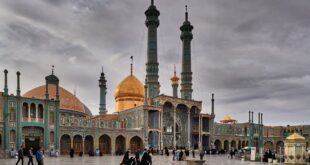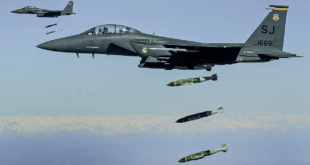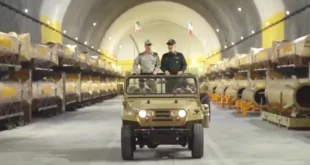 TEHRAN (FNA)- An Israeli think tank claimed that Iran will install an advanced air defense system the country bought from Russia next year.
TEHRAN (FNA)- An Israeli think tank claimed that Iran will install an advanced air defense system the country bought from Russia next year.
The report said the S-300PMU-2 air defense system will be deployed in 2009 and it will be operational by the middle of the next year.
The report by the Institute for Contemporary Affairs said the S-300 would complement other Russian air defense systems in Iran, particularly the TOR-M1.
“The S-300 system, which has a radius of over 90 miles and effective altitudes of about 90,000 feet, is capable of tracking up to 100 targets simultaneously,” the World Tribune quoted the report as saying on Wednesday.
“It is considered one of the best in the world and is amazingly versatile. It is capable of shooting down aircraft, cruise missiles, and ballistic missile warheads,” it added.
The report said the deployment of the defense system in Iran will hamper any US and Israeli plans to launch an attack against the country.
“The deployment of the anti-aircraft shield next spring, if it occurs, effectively limits the window in which Israel or the United States could conduct an effective aerial campaign aimed at destroying, delaying or crippling the Iranian nuclear program,” the report added.
“Many of the Iranian targets are fortified, and will require bunker busters,” the report said.
“Operational challenges abound. Israel’s EW planes, needed to suppress anti-aircraft batteries, are slow and unarmed, and could become a target for Iranian anti-aircraft missiles or even fighter sorties,” Ariel Cohen, a senior researcher at the Washington-based Heritage Foundation, said.
Israel and its close ally the United States accuse Iran of seeking a nuclear weapon, while they have never presented any corroborative document to substantiate their allegations. Both Washington and Tel Aviv possess advanced weapons of mass destruction, including nuclear warheads.
Iran vehemently denies the charges, insisting that its nuclear program is for peaceful purposes only. Tehran stresses that the country has always pursued a civilian path to provide power to the growing number of Iranian population, whose fossil fuel would eventually run dry.
Iran has also insisted that it would continue enriching uranium because it needs to provide fuel to a 300-megawatt light-water reactor it is building in the southwestern town of Darkhoveyn as well as its first nuclear power plant in the southern port city of Bushehr.
Tel Aviv and Washington have recently intensified their threats to launch military action against Iran to make Tehran drop what they allege to be a non-peaceful nuclear program, while a recent report by 16 US intelligence bodies endorsed the civilian nature of Iran’s nuclear plans and activities.
Following the US National Intelligence Estimate (NIE) and similar reports by the IAEA head – one in November and the other one in February – which praised Iran’s truthfulness about key aspects of its past nuclear activities and announced settlement of outstanding issues with Tehran, any effort to impose further sanctions or launch military attack on Iran seems to be completely irrational.
The February report by the UN nuclear watchdog, the International Atomic Energy Agency, praised Iran’s cooperation in clearing up all of the past questions over its nuclear program, vindicating Iran’s nuclear program and leaving no justification for any new UN sanctions.
The UN nuclear watchdog has also carried out at least 14 surprise inspections of Iran’s nuclear sites so far, but found nothing to support West’s allegations.
Following the said reports by the US and international bodies, many world states have called the UN Security Council pressure against Tehran unjustified, demanding that Iran’s case must be normalized and returned from the UNSC to the IAEA.
Meantime, a recent study by the Institute for Science and International Security (ISIS), a prestigious American think tank, found that a military strike on Iran’s nuclear facilities “is unlikely” to delay the country’s program.
The ISIS study also cautioned that an attack against Iran would backfire by compelling the country to acquire nuclear weaponry.
 Eurasia Press & News
Eurasia Press & News



